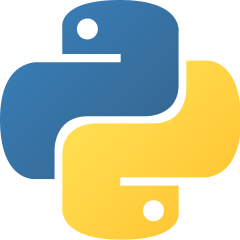
Python has become one of the most popular programming languages in scientific computing. It is high level enough that learning it is easy, and coding with it is significantly faster than other programming languages. However, the performance of pure Python programs is often sub-optimal, and might hinder your research. In this course, we will show you some ways to identify performance bottlenecks, improve slow blocks of code, and extend Python with compiled code. You'll learn about various ways to optimise and parallelise Python programs, particularly in the context of scientific and high performance computing.
Prerequisite knowledge: Know what classes and functions are; familiarity with Jupyter Notebook; basic console use; and comfortable with Python software carpentry material.
Live online classes will take place on Tues. Oct. 15, Fri. Oct. 18, Tues. Oct. 22, and Fri. Oct. 25 from 1 P.M. to 2 P.M. Eastern Time. Recordings of live classes will be available afterwards in this course for self-paced learning and review.
- Teacher: Nastaran Shahparian
- Teacher: Collin Wilson
